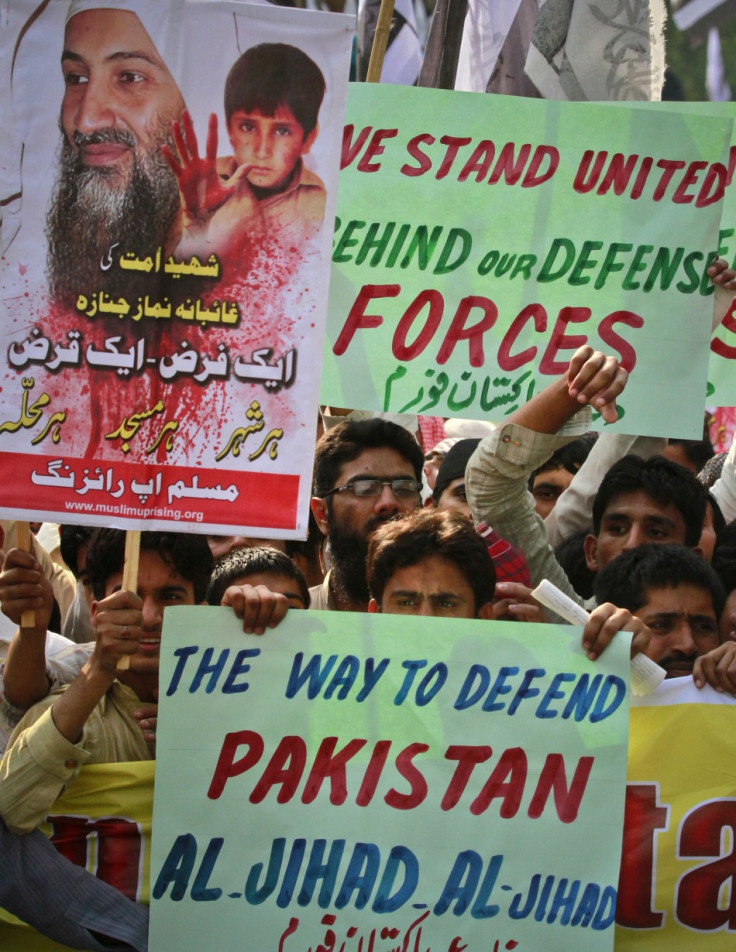Pakistan-US relations: As tensions and suspicions increase, is Pakistan the new Afghanistan?

As the U.S. looks ahead to its phased withdrawal from Afghanistan, even more attention is being directed toward Pakistan, where Obama administration officials say al-Qaeda and its allies are still plotting attacks against the West.
Officials in the U.S have recently made it clear that they are confident the threat has been effectively neutralized in Afghanistan. Earlier on this week, President Obama announced in a televised address that the U.S. will withdraw 33,000 troops from Afghanistan by next summer.
The U.S. invaded Afghanistan in 2001 because al-Qaida used it as the base to launch the 9/11 attacks, however since the death of Bin Laden, it has maintained that Al Qaeda's operational base has moved to another country, and as the U.S has grown happy with the "new friendly" Afghanistan, it also grew wary of its neighbour, Pakistan.
"We haven't seen a terrorist threat emanating from Afghanistan for the past seven or eight years," said a senior administration official in a briefing given to reporters in Washington before Obama's speech. "The threat has come from Pakistan over the past half-dozen years or so, and longer."
Since Al-Qaeda leader Bin Laden was killed by U.S forces in the city of Abbottabad in Pakistan, the relationship between the two countries have been strained. The U.S had previously accused Pakistani authorities of financing terrorism and terrorist activities, which the government has always vehemently denied. Following the American raid that took place without the knowledge of Pakistani authorities, Pakistan decided to cut back on counterterrorism cooperation with the U.S, which proved to be a popular move as anti-American feeling in the country is increasing.
Afghanistan could thus take on new significance for the U.S. who has made it clear that while their battle against Al-Qaeda in Afghanistan is over, the fight is still going on.
Analysts now say that Afghanistan could be used as a base to launch unilateral strikes against militants inside neighbouring Pakistan, an unstable nuclear-armed country that is more strategically important than Afghanistan.
Since Pakistan effectively prohibits American troops inside the country and as the U.S government accuses it of being a reluctant ally in targeting militants the U.S. deems a threat, it has been revealed that Washington has increasingly relied on covert CIA drone missile strikes to target al-Qaeda and Taliban fighters holed up in Pakistan's mountainous border region with Afghanistan.
Washington has for now refused to acknowledge the drone program in Pakistan, but analysts say Obama alluded to its effectiveness in his speech, saying "together with the Pakistanis, we have taken out more than half of al-Qaida's leadership."
The Pakistani government is said to be aware of the drone program but it has been reported that lawmakers have increasingly demanded the government to halt the program. The death of Bin laden on Pakistani soil has however lessen Pakistan's ability to openly reject U.S government's demands as it is now under pressure to prove it is committed to fight off terrorism and is a serious ally.
While the government has tried to maintain its relationship with the hegemon, new surveys have found that nearly 70 per cent of the Pakistani population views the U.S. as an enemy. The main obstacle between the US and its ally's population stands in the people's fear that the U.S is still an imperialist country which aims at invading their territory.
On the other hand, Pakistan has also warned the U.S it has to respect its sovereignty if they wanted cooperation to continue.
However, the U.S. has made it clear that if it obtains intelligence on future high-value terrorist targets inside Pakistan, it could stage Special Forces attacks from Afghanistan like the one that killed bin Laden.
The raid infuriated Pakistan because the authorities were left in the dark but the U.S counter attacked by saying they kept it secret because they were worried that Bin Laden would be tipped off by extremist sympathizers in the Pakistani military.
It has since then be reported that Pakistan responded to the raid by kicking out more than 100 U.S. troops training Pakistanis soldiers, which further angered the U.S.
Washington has also said that is does not understand Pakistan's unwillingness to target Afghan Taliban militants and their allies in the country, letting them free to launch cross-border attacks against NATO troops in Afghanistan.
However, while the U.S has recently voiced its disappointment with Pakistan, the same Pakistani security forces have killed or captured over 400 al-Qaeda members since 2001, lost over 3,000 of their own soldiers and policemen fighting militant groups in Pakistan, and al-Qaeda also tried to kill former president Pervez Musharraf at least three times.
There clearly are longstanding contradictions within Pakistan's armed forces and the security services as pro and anti-Americans are working together under their government banner. Understanding the root causes of those contradictions is as essential for the U.S as it is for Pakistan if they want to keep on maintaining a stable relationship.
Unfortunately, while the raid that killed Bin Laden was a victory for the U.S, in Pakistan, there have been demonstrations in several cities condemning the government for allowing the American incursions.
And as the news that the mobile phone of Osama Bin Laden's courier contained contacts to a militant group that is a long-time asset of Pakistan's intelligence agency has just emerged, tensions and accusations between the two countries risk to escalate even further.
© Copyright IBTimes 2025. All rights reserved.





















